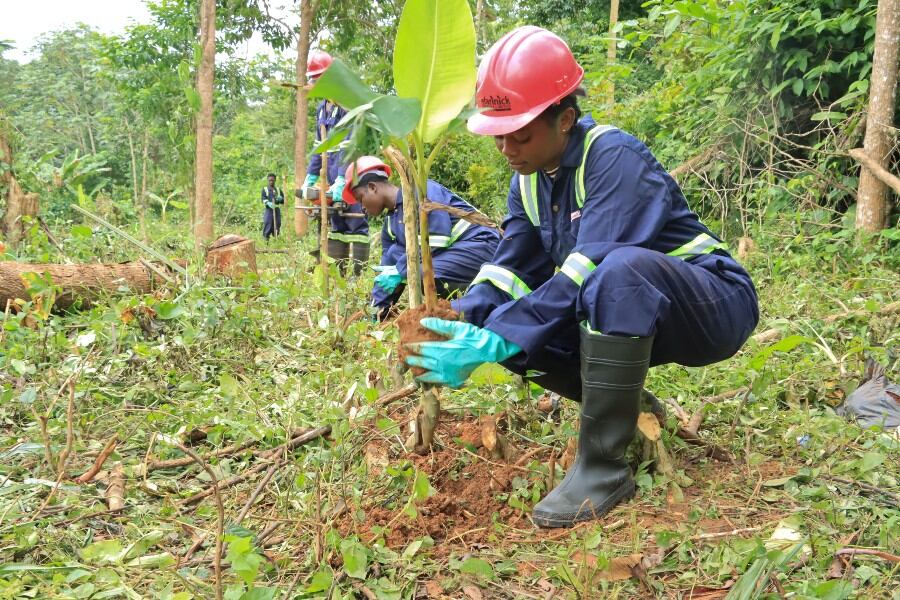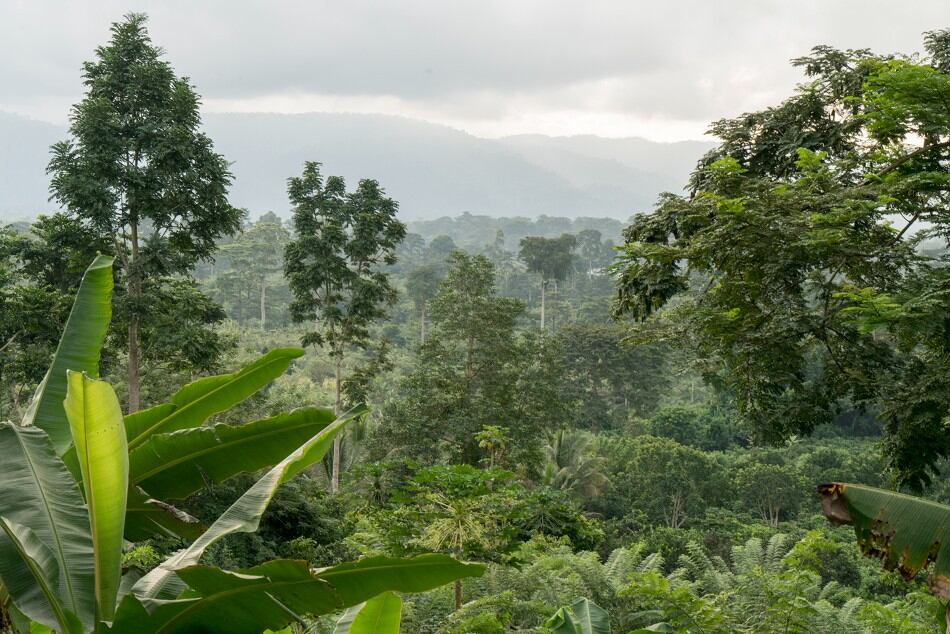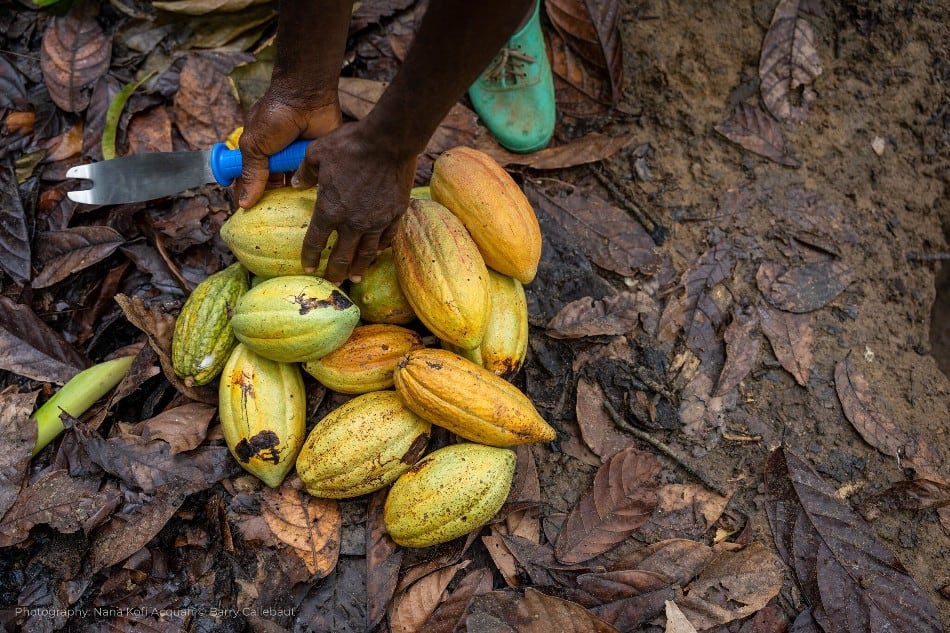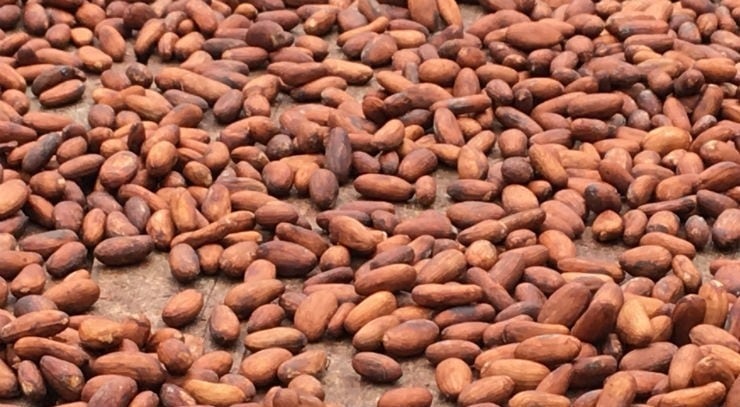According to data from various sources, more than 315,000 hectares of the country’s 1.9 million hectares of cocoa farms are affected by the Cocoa Swollen Shoot Virus Disease (CSSVD). In 2019, the African Development Bank (AfDB) facilitated a credit facility to help revitalise the cocoa sector in Ghana.
The cocoa rehabilitation programme took off the following year to fell and replant diseased and moribund farms using the cocoa agroforestry technique for sustainable production. The intervention is hoped to, ultimately, help improve farmer incomes through increased farm productivity.
This rehabilitation effort has seen quite some progress, albeit beset by labour deficiencies, among other setbacks. The grave labour issue is, perhaps, the least recognised difficulty confronting cocoa production in the world’s second-largest producer nation. To address this challenge, an indigenous Ghanaian agricultural services consortium was contracted to help accelerate programme delivery.
The Afarinick Company Limited (ACL) and Kumad Global Impact Limited (KGIL) consortium have a proven track record in farm service and enormous knowledge of the cocoa value chain. Their range of services cut across the production of quality planting material, farm management, sustainability support, haulage and logistics, training and commodities consulting.
As part of its service public-private partnership contract, ACL-KGIL is operationalising the cocoa rehabilitation programme goals with its core team of diverse, experienced and well-resourced professionals.
Acute labour shortage
Data by the Ghana Statistical Service (GSS) indicates that some 1.76 million persons were unemployed in the third quarter of 2022. The unemployment figures were markedly high in urban centres which stand at the receiving end of perennial rural-urban drift, caused mostly by the search for non-existent jobs. The situation is true in most cocoa-growing communities where because of the prevailing downscale in cocoa production, many of the available workers have migrated to cities and towns for greener pastures. Aside from the youth exodus to the cities, the few remaining labourers have been drawn into illegal gold mining and other economic activities. This means most cocoa rehabilitation operational areas are faced with an acute labour shortage, presenting a major hurdle for the programme rollout.
Nationwide youth employment
The firms estimate they would require more than 50,000 personnel at various stages to execute their farm service contract. Thus, to help deliver on its mandate, ACL-KGIL embarked on a massive nationwide recruitment drive to attract an additional 20,000 unemployed youth to support its existing 30,000-strong labour force. By mid-May, the recruitment exercise had attracted north of 16,000 applications from across the country
Out of this number, the first batch of 4,000 workers designated as Rehabilitation Technicians have been engaged by the company for on-the-job orientation. This successful intake was grouped into cohorts or sub-contractor teams of 10 apiece, making a total of 400 cohorts for the farm establishment phase. All the cohorts are taken through rigorous business incubation training to build their capacity in business and farm management. Upon confirmation, these cohorts will sign formal contracts with ACL-KGIL to operate as sub-contractors under the cocoa rehabilitation programme.
Nurturing farm management businesses
To further demonstrate its commitment to reversing the perennial rural-urban migration, the companies plan to systematically attract more urban dwellers into rural agricultural jobs to satisfy its fast-growing demand for labour. For Afarinick-Kumad, its success at reversing rural-urban labour migration testifies to continually leveraging its technical know-how and modernised farm service offerings to catalyse the creation of millions of sustainable jobs and livelihoods for young people. Economic empowerment, therefore, remains a cardinal motivation for its deliberate investment in nurturing and building the capacities of the sub-contractor groups to become thriving youth-owned and operated indigenous farm management businesses in the cocoa value chain post the National Cocoa Rehabilitation Programme.
Competitive pay and service conditions
Every cohort may earn over GHS60,000 ($520) a month upon completing the assigned range of activities on the allocated 60-hectare plot. These farm service cohorts may undertake additional activities to earn extra income at agreed rates. All Rehabilitation Technicians are supported with transportation to their respective operational districts and provided with rural accommodation.
In keeping with project safety protocols, the personnel are also provided with Personal Protective Equipment (PPE), namely overall jackets, safety boots, goggles, gloves and helmets, in addition to insurance cover for health and injuries. Despite having closed the mass recruitment programme, dozens of proposals keep coming in daily from interested youth also asking to be given the opportunity to work with the farm service groups.
Mechanised cocoa farming
As part of its long-term objective of making the business of cocoa production attractive to the younger generation, Afarinick-Kumad has invested heavily in technology and modern agricultural machinery to make service provision less laborious. This is to ensure the main activities performed as part of the rehabilitation programme such as slashing, cutting, lining and pegging, holing and planting would not be energy-sapping. To mechanise these important tasks, therefore, all the teams are equipped with motorised slashers, chainsaws, and earth augers to improve efficiency while making the activities less labour-intensive, a remarkable departure from the traditional cocoa farming method. The consortium believes that mechanisation must be a permanent feature of cocoa farming in Ghana, in line with the Global Goal of achieving sustainable consumption and production.
Driving urban-rural labour drift
With this scale of investment into mechanised and incentive-driven agriculture, it comes as no surprise that thousands of Ghanaian youth are already finding cocoa rehabilitation jobs very attractive. Thus, in less than a year of launching its cocoa rehabilitation support service, Afarinick-Kumad has attracted over 30,000 young workers from across Ghana, some of whom are currently engaged as Rehabilitation Assistants (RAs).
Data from the recent enrolment of an additional 4,000 unemployed youth revealed that the majority of applicants possessed impressive academic backgrounds. The demographic data also showed that of the over 16,000 applications received, the majority of applicants are originally domiciled in cities and towns and ready to relocate to rural cocoa communities.
In spite of the increasing number of urban-origin personnel, the youth and mostly farmers from cocoa farming communities still dominate the Afarinick-Kumad labour force. A lot of these community youth are quitting illegal mining activities (galamsey) and taking up well-paid farm service jobs in the cocoa rehabilitation operational areas. This positive development lends credence to one of the strategic objectives of Afarinick-Kumad, which is to orchestrate a significant trend of urban-rural labour drift leveraging mechanised agriculture, attractive remuneration and competitive working conditions.
Women empowerment
Before the current project, however, ACL-KGIL, one of Ghana's biggest integrated agricultural service providers, has for the past two years been producing millions of plantain seedlings at six ultra-modern nursery sites in five regions, namely Western North, Eastern, Oti, Ahafo and Western. Afarinick and Kumad are on course to deliver a projected 25 million plantain seedlings for the cocoa rehabilitation programme in 2023 alone, and a total of 117 million over the programme cycle. The plantains provide temporary shade for the cocoa seedlings as well as a water reservoir for providing much-needed moisture for the young trees during drought. These plantain nurseries cumulatively have over 5,000 workers, whereas an additional 50% of this number are engaged periodically on short-term seedling evacuation contracts.
In line with its commitment to advancing the Global Goal of gender equality and women empowerment, ACL-KGIL has ensured that 65% of personnel at its nurseries are women, and they earn equal pay for the same work as their male counterparts. Apart from engaging in decent work and being lifted out of poverty, workers at the nursery sites also get to benefit from technology transfer in the scientific production of plantain seedlings.
Following this impressive success, thus far, with the African Development Bank-funded cocoa rehabilitation programme in Ghana, Afarinick Company Limited and Kumad Global Impact Limited have no doubt demonstrated the capacity to partner with policymakers and development partners to uplift the country’s agricultural productivity to ensure food security and sustainable development.
- Kojo Hayford is editor of theCocoaPost.com and based in Accra, Ghana.




